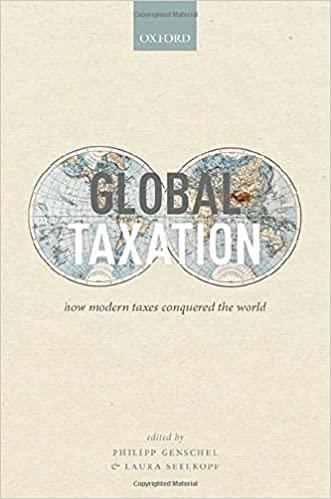Assume the same facts as in Problem C:13-48 and that before Yuji's death in 2018 his wife
Question:
Assume the same facts as in Problem C:13-48 and that before Yuji's death in 2018 his wife already owned property valued at $300,000. Assume that each asset owned by each spouse increased 8% in value by the surviving spouse's date of death later in 2018 and that Yuji's executor elected to claim the maximum marital deduction possible. Assume there were no state death taxes. From a tax standpoint, was the executor's strategy of electing the marital deduction on the QTIP trust a wise decision? Support your answer with computations.
Data from Problem C: 13-48:
Assume the same facts as in Problem C:13-47 except that Yuji's will also provided for setting up a trust to be funded with $400,000 of property with a bank named as trustee. His wife is to receive all the trust income semiannually for life, and upon her death the trust assets are to be distributed equally among Yuji's children and grandchildren.
Data from Problem C: 13-47:
Assume the same facts as in Problem C:13-47 except that Yuji's will also provided for setting up a trust to be funded with $400,000 of property with a bank named as trustee. His wife is to receive all the trust income semiannually for life, and upon her death the trust assets are to be distributed equally among Yuji's children and grandchildren.
Data from Problem C: 13-47:
When Yuji died in March 2018, his gross estate was valued at $15 million. He owed debts tota ling $300,000. Funeral and administration expenses were $12,000 and $120,000, respectively. The marginal estate tax rate exceeded his estate's marginal income tax rate. Yuji willed his church $300,000 and his spouse $1.1 million.
Step by Step Answer:

Global Taxation How Modern Taxes Conquered The World
ISBN: 9780192897572
1st Edition
Authors: Philipp Genschel, Laura Seelkopf





